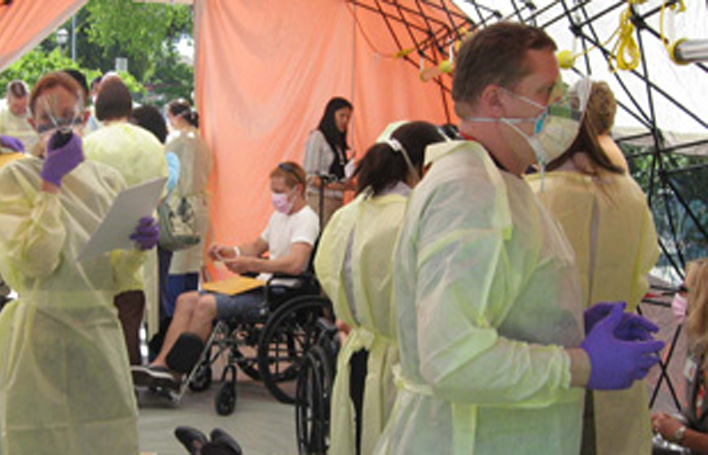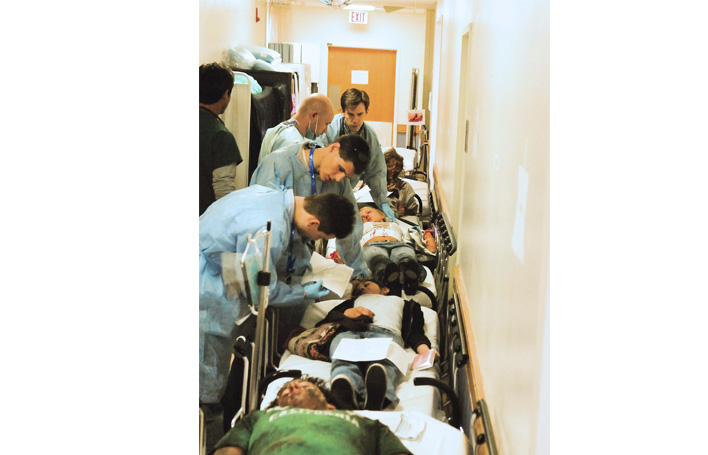Connecticut Health Care Coalition
The Connecticut Health Care Coalition (CT HCC) is an interconnected partnership among key stakeholders whose mutual goal is to promote disaster resilience within the Connecticut healthcare delivery workforce. CT HCC seeks to prepare for, and respond to mass-casualty and catastrophic medical and public health incidents that elicit a large and sudden influx of patients to hospitals, and potentially, interrupt essential functions of the healthcare delivery system. CT HCC works to expand medical surge for specialty areas of pediatrics, burn injuries, highly infectious diseases, radiation, and chemical exposures.
The CT HCC website is designed to facilitate the sharing of information and documents, as well as provide notifications to CT HCC stakeholders
Health Care Coalition Core Capabilities
Capability 1: Foundation for Health Care and Medical Readiness
The community’s
health care organizations and other stakeholders—coordinated
through a sustainable HCC—have strong relationships, identify hazards and risks, and prioritize and
address gaps through planning, training, exercising, and managing resources.
Capability 2: Health Care and Medical Response Coordination
Health care organizations, the HCC, their jurisdiction(s), and the ESF-8 lead agency
plan and collaborate to share and analyze information, manage and share resources, and coordinate
strategies to deliver medical care to all populations during emergencies and planned events.
Capability 3: Continuity of Health Care Service Delivery
Health care organizations, with support from the HCC and the ESF-8 lead agency provide uninterrupted, optimal medical care to all populations in the face of damaged or disabled health care infrastructure. Health care workers are well-trained, well-educated, and well-equipped to care for patients during emergencies. Simultaneous response and recovery operations result in a return to
normal or, ideally, improved operations.
Capability 4: Medical Surge
Health care organizations—including hospitals, EMS, and out-of-hospital
providers—deliver timely and efficient care to their patients even when the demand for health care
services exceeds available supply. The HCC, in collaboration with the ESF-8 lead agency, coordinates
information and available resources for its members to maintain conventional surge response. When an
emergency overwhelms the HCC’s collective resources, the HCC supports the health care delivery system’s transition to contingency and crisis surge response and promotes a timely return to
conventional standards of care as soon as possible
These four capabilities were developed based on guidance provided in the 2012 Healthcare Preparedness Capabilities: National Guidance for Healthcare System Preparedness document. They support and cascade from guidance documented in the National Response Framework, National Preparedness Goal, and the National Health Security Strategy to build community health resilience and integrate health care organizations, emergency management organizations, and public health agencies.




